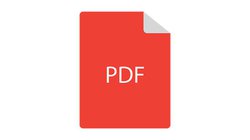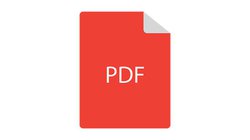
Sometimes we are required to dump database data in CSV or Excel file. In this article we will see how to download the data in CSV or Excel file in Django.
Download data as Excel file in Django:
For downloading data in excel file we need to addxlwt package in our environment. I assume you are using virtual environment to develop your django app. It is always recommended to user virtual environment.
Once virtual environment is activated, Run this command to add xlwt package.
pip install xlwt
Inside your view, import xlwt package.
Use below code in your view in views.py file to create and download excel file.
import xlwt
from django.http import HttpResponse
def download_excel_data(request):
# content-type of response
response = HttpResponse(content_type='application/ms-excel')
#decide file name
response['Content-Disposition'] = 'attachment; filename="ThePythonDjango.xls"'
#creating workbook
wb = xlwt.Workbook(encoding='utf-8')
#adding sheet
ws = wb.add_sheet("sheet1")
# Sheet header, first row
row_num = 0
font_style = xlwt.XFStyle()
# headers are bold
font_style.font.bold = True
#column header names, you can use your own headers here
columns = ['Column 1', 'Column 2', 'Column 3', 'Column 4', ]
#write column headers in sheet
for col_num in range(len(columns)):
ws.write(row_num, col_num, columns[col_num], font_style)
# Sheet body, remaining rows
font_style = xlwt.XFStyle()
#get your data, from database or from a text file...
data = get_data() #dummy method to fetch data.
for my_row in data:
row_num = row_num + 1
ws.write(row_num, 0, my_row.name, font_style)
ws.write(row_num, 1, my_row.start_date_time, font_style)
ws.write(row_num, 2, my_row.end_date_time, font_style)
ws.write(row_num, 3, my_row.notes, font_style)
wb.save(response)
return response
Download data as CSV file in Django:
Importcsv and smart_str package in your view. Use below code to download the data in CSV format.
import csv
from django.utils.encoding import smart_str
def download_csv_data(request):
# response content type
response = HttpResponse(content_type='text/csv')
#decide the file name
response['Content-Disposition'] = 'attachment; filename="ThePythonDjango.csv"'
writer = csv.writer(response, csv.excel)
response.write(u'\ufeff'.encode('utf8'))
#write the headers
writer.writerow([
smart_str(u"Event Name"),
smart_str(u"Start Date"),
smart_str(u"End Date"),
smart_str(u"Notes"),
])
#get data from database or from text file....
events = event_services.get_events_by_year(year) #dummy function to fetch data
for event in events:
writer.writerow([
smart_str(event.name),
smart_str(event.start_date_time),
smart_str(event.end_date_time),
smart_str(event.notes),
])
return response
Let us know by commenting if you are facing any issue.
Host your Django App on PythonAnyWhere for Free.
0 comments on 'How To Download Data As Csv And Excel File In Django'
Related Articles:

Python requests library to send GET and POST requests, Sending query params in Python Requests GET method, Sending JSON object using python requests POST method, checking response headers and response status in python requests library...

display pdf in browser in Django, PDF response in Django, How to display PDF response in Django, Generating PDF from HTML template in Django, Download PDF in Django, Inline pdf display in Django, In browser PDF display in Django, Showing employee payslip in the browser using Django...

Creating PDF documents in Python and Django, Returning PDF as response in Django, Generating PDF from HTML template in Django, Using pdfkit and wkhtmltopdf in python and django...

How to upload and process the content of excel file in django without storing the file on server. Process Excel file content in Django. Uploading and reading Excel file content in Django 2.0 without storing it on server....
Recent Posts: